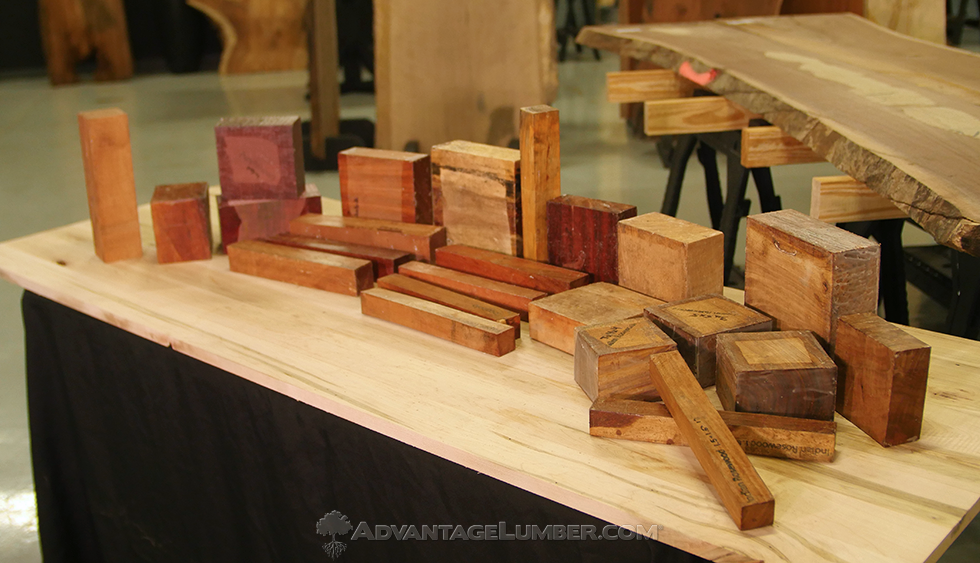- Scientific Name
- Hymenaea oblongifolia
- Common Name(s)
- Jatoba, Brazilian Cherry
- Distribution
- Central America, southern Mexico, northern South America, and the West Indies
- Average Dried Weight
- 57 lbs/ft3 (910 kg/m3)
- Specific Gravity
- Basic: .77, 12% MC: .91
- Janka Hardness
- 2,690 lbf (11,950 N)
- Modulus of Rupture
- 22,510 lbf/in2 (155.2 MPa)
- Elastic Modulus
- 2,745,000 lbf/in2 (18.93 GPa)
- Crushing Strength
- 11,780 lbf/in2 (81.2 MPa)
- Shrinkage
- Radial: 4.2%, Tangential: 8.0%, Volumetric: 12.1%, T/R Ratio: 1.9
- Appearance
- Heartwood varies from a light orangish brown to a darker reddish brown, sometimes with contrasting darker grayish brown streaks. Color tends darken upon exposure to light. Sapwood is a light grayish yellow, clearly demarcated from the heartwood.
- Texture
- Grain is typically interlocked, with a medium to coarse texture. Good natural luster. Endgrain: Diffuse-porous; large pores, very few; solitary and radial multiples of 2-3; mineral deposits (dark brown) occasionally present; parenchyma vasicentric, aliform (lozenge or winged), confluent, and marginal; narrow to medium rays, normal spacing.
- Rot Resistance
- Jatoba is rated as being very durable in regards to rot resistance, and is also resistant to termites and most other insects. (Though it has been reported to be susceptible to attack from marine borers.)
- Workability
- Jatoba is considered difficult to work with on account of its density and hardness, and has a moderate blunting effect on tool cutters. Jatoba also tends to be difficult to plane without tearout due to its interlocking grain. However, Jatoba glues, stains, turns, and finishes well. Responds well to steam-bending.
- Odor
- No characteristic odor.
- Allergies/Toxicity
- Although severe reactions are quite uncommon, Jatoba has been reported to cause skin irritation.
- Pricing/Availability
- Available in satisfactory sizes and widths as lumber, and also available as flooring planks. Jatoba is inexpensive for an imported timber.
- Sustainability
- This wood species is not listed in the CITES Appendices, and is reported by the IUCN as being a species of least concern.
- Common Uses
- Flooring, furniture, cabinetry, tool handles, shipbuilding, railroad ties, turned objects, and other small specialty items.
- Comments
- Although it’s widely named “Brazilian Cherry,” (mostly among flooring sellers), it bears little relation to the domestic Cherry (Prunus serotina) that is found in the US, except perhaps that its natural color closely matches the common stained color of domestic Cherry that has been aged/stained reddish-brown as seen on some interior furniture. Jatoba is exceptionally stiff, strong, and hard—representing a great value for woodworkers seeking high-strength, low-cost lumber.


